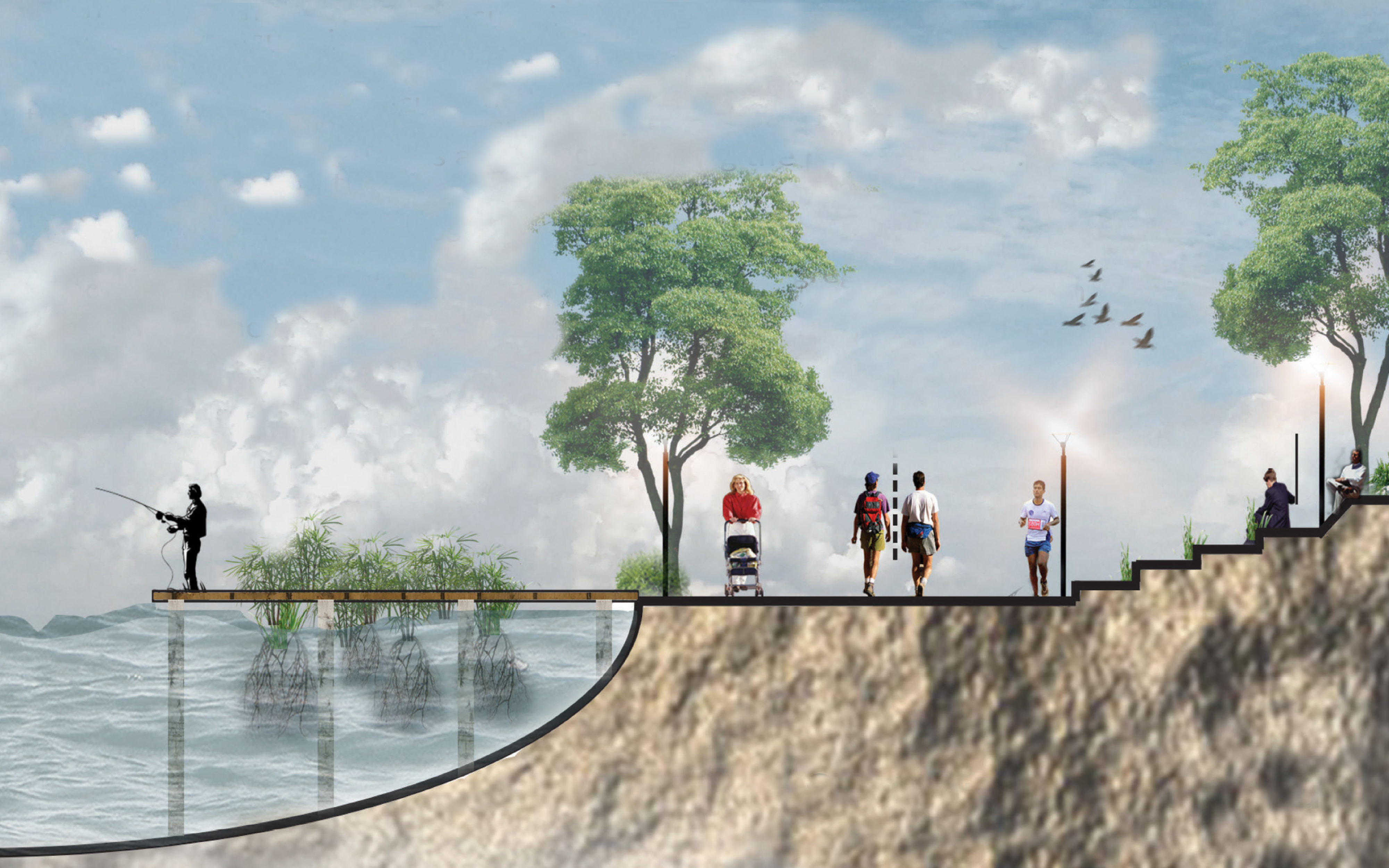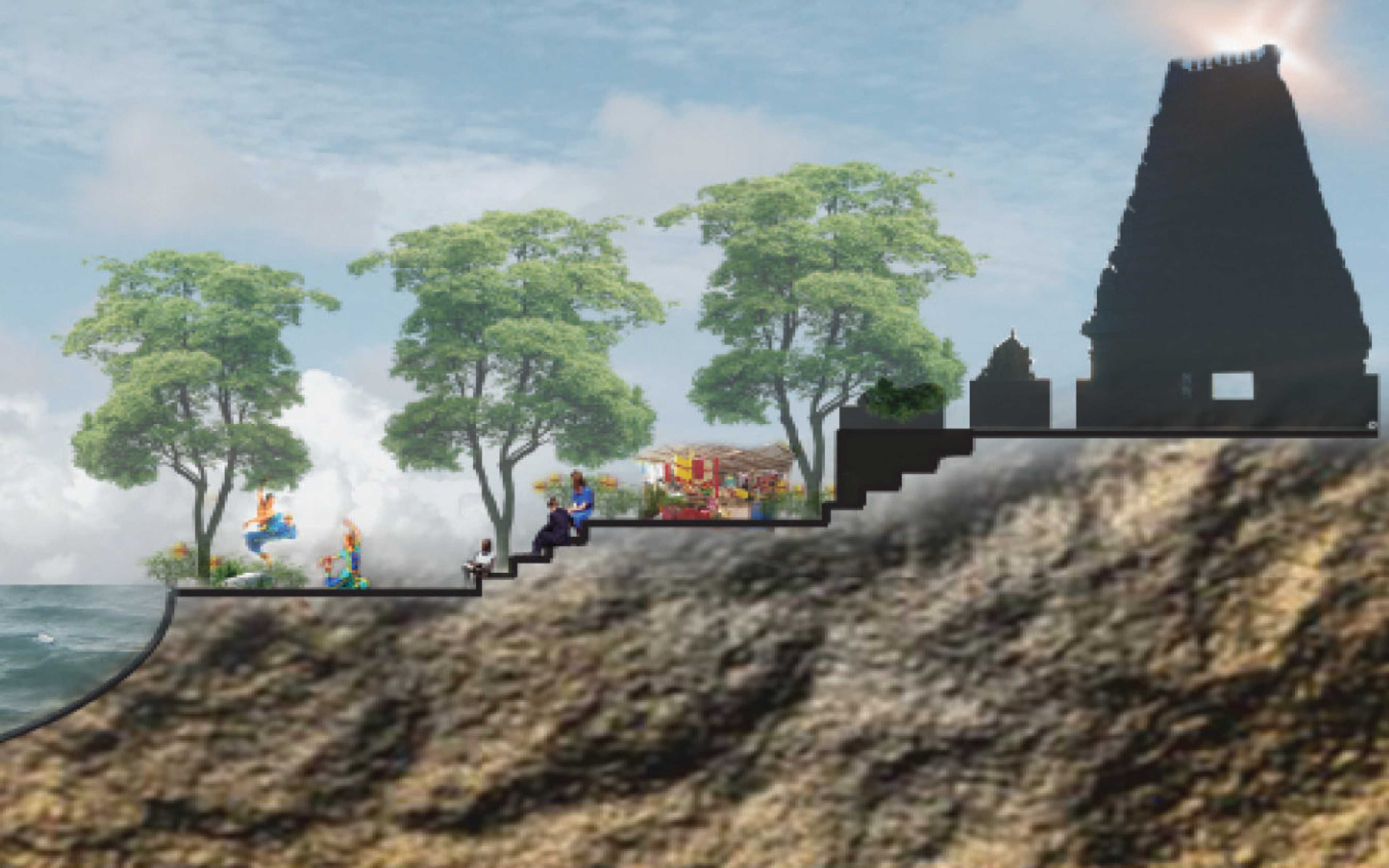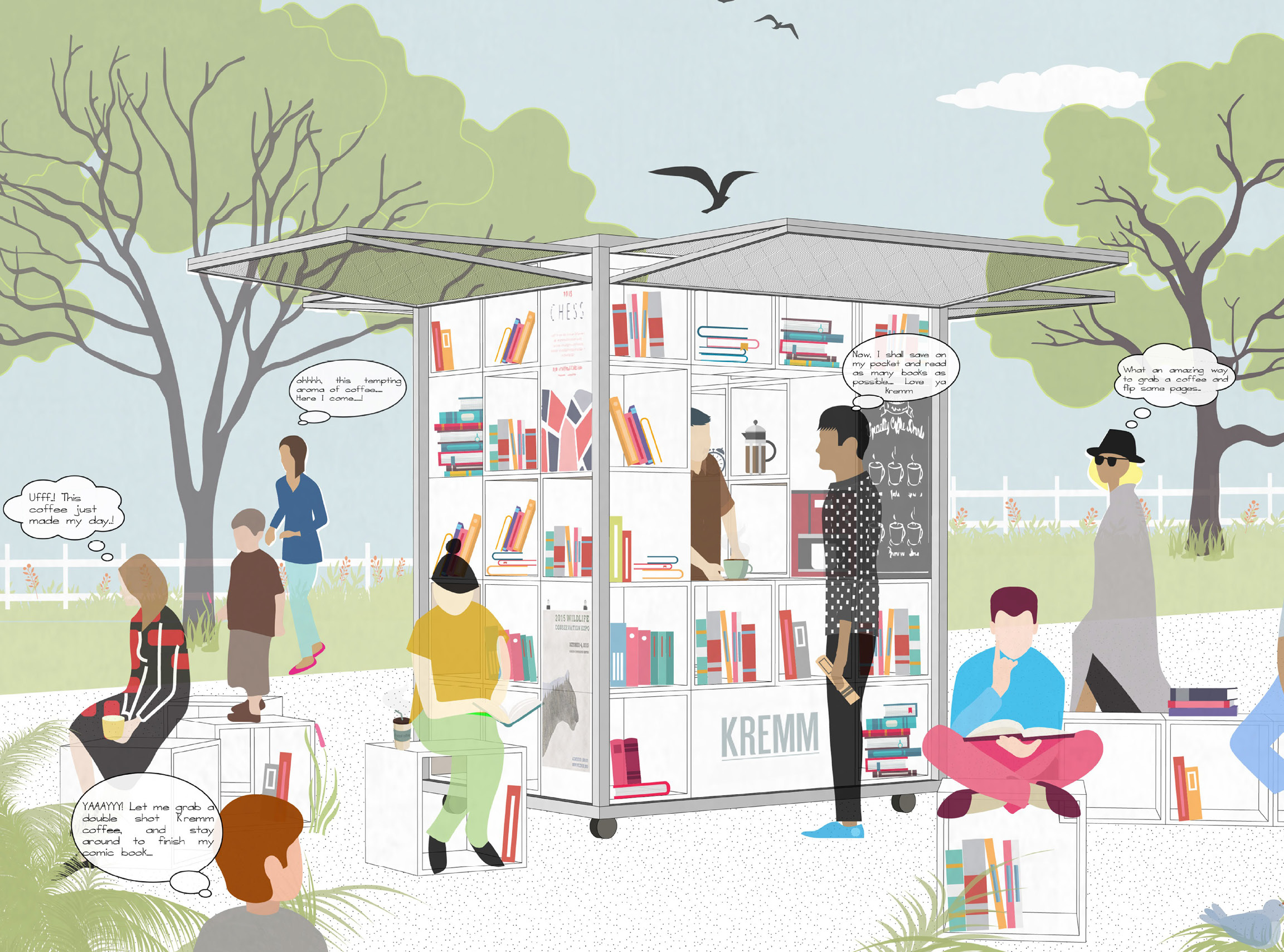Re-Imagining Cooum River
A Framework of Sectional Collages Exploring Phyto- and Bacterial-Based Techniques for Soil Remediation and Public Use in Chennai, India
September
2015
Cities
Chennai, India

The Cooum River, once central to Chennai’s urban evolution, has deteriorated into an urban contamination due to rapid urbanization, waste dumping, and population growth. Once a lifeline that shaped cultural, religious, and institutional zones, it now carries solid waste, organic sludge, and toxic effluents that cause health, environmental, and socio-economic issues. This proposal reclaims the river through a three-stage process: removing solid waste via sedimentation, cleansing toxins with phytoremediation, and enriching water with bacteria and mangrove wetlands. Interactive landscapes, floating pods, and mobile wetlands transform the cleaning process into public engagement. Integrated cycle tracks, pedestrian paths, and green bridges reestablish the Cooum as a cultural and ecological corridor.
Affliation
Anna University School of Architecture and Planning






